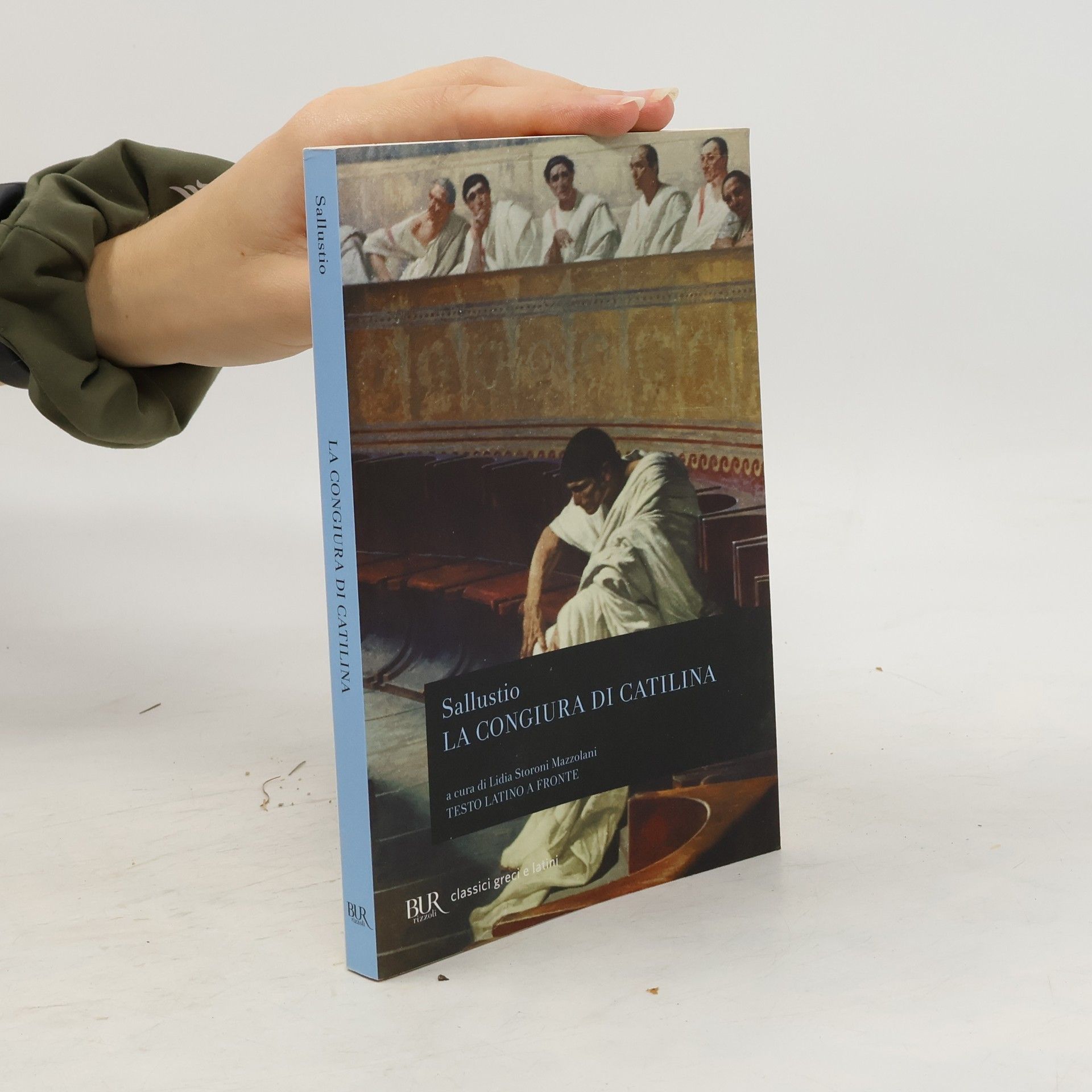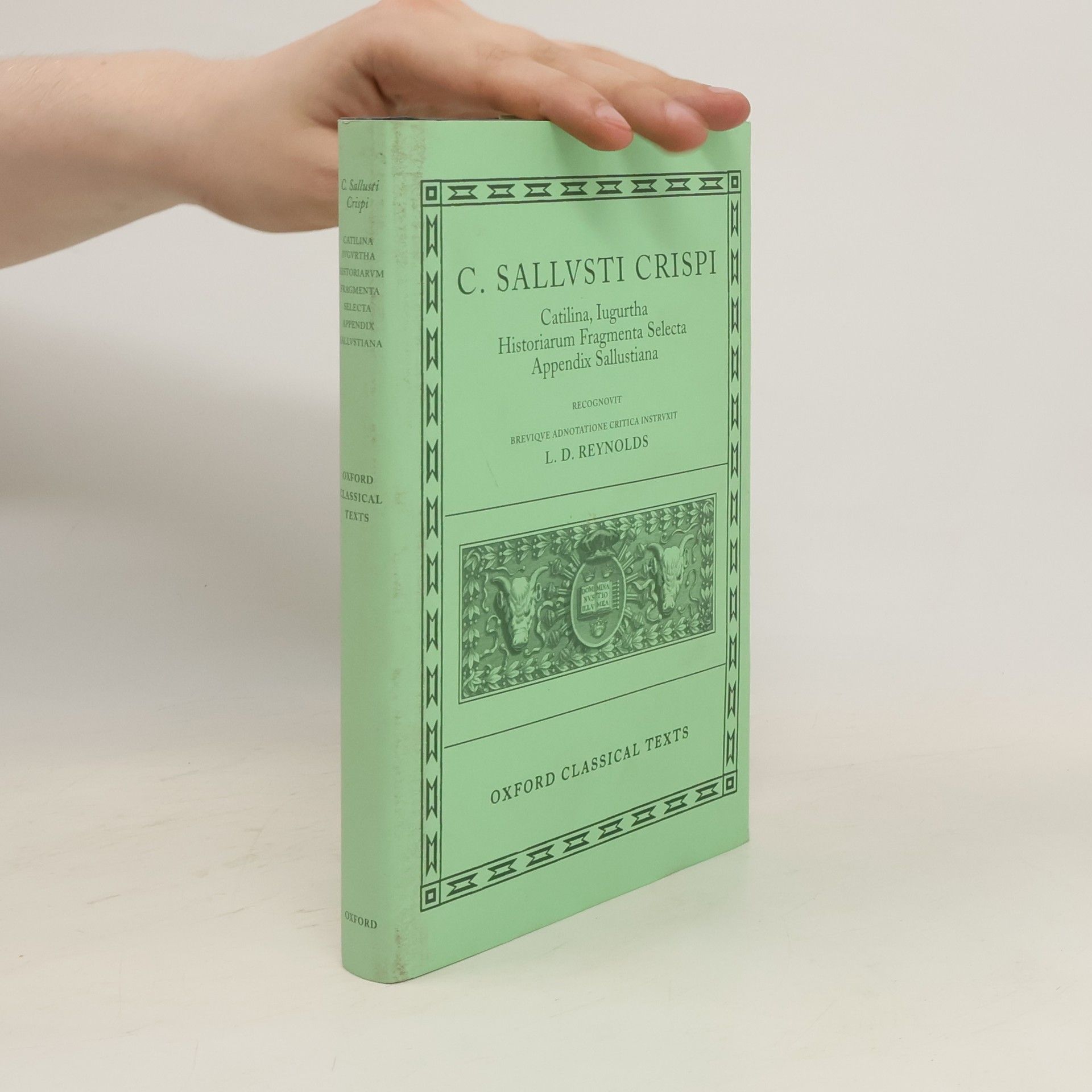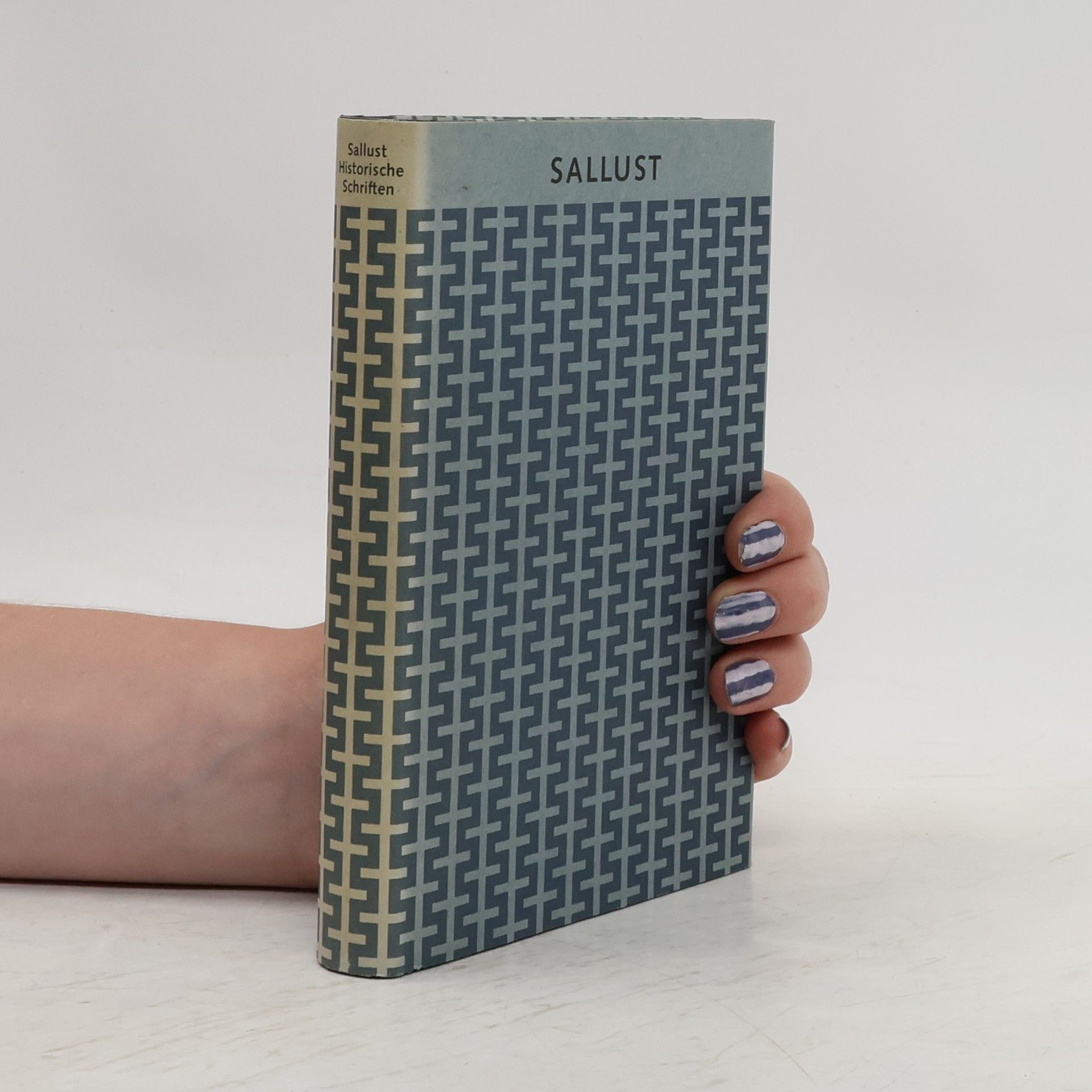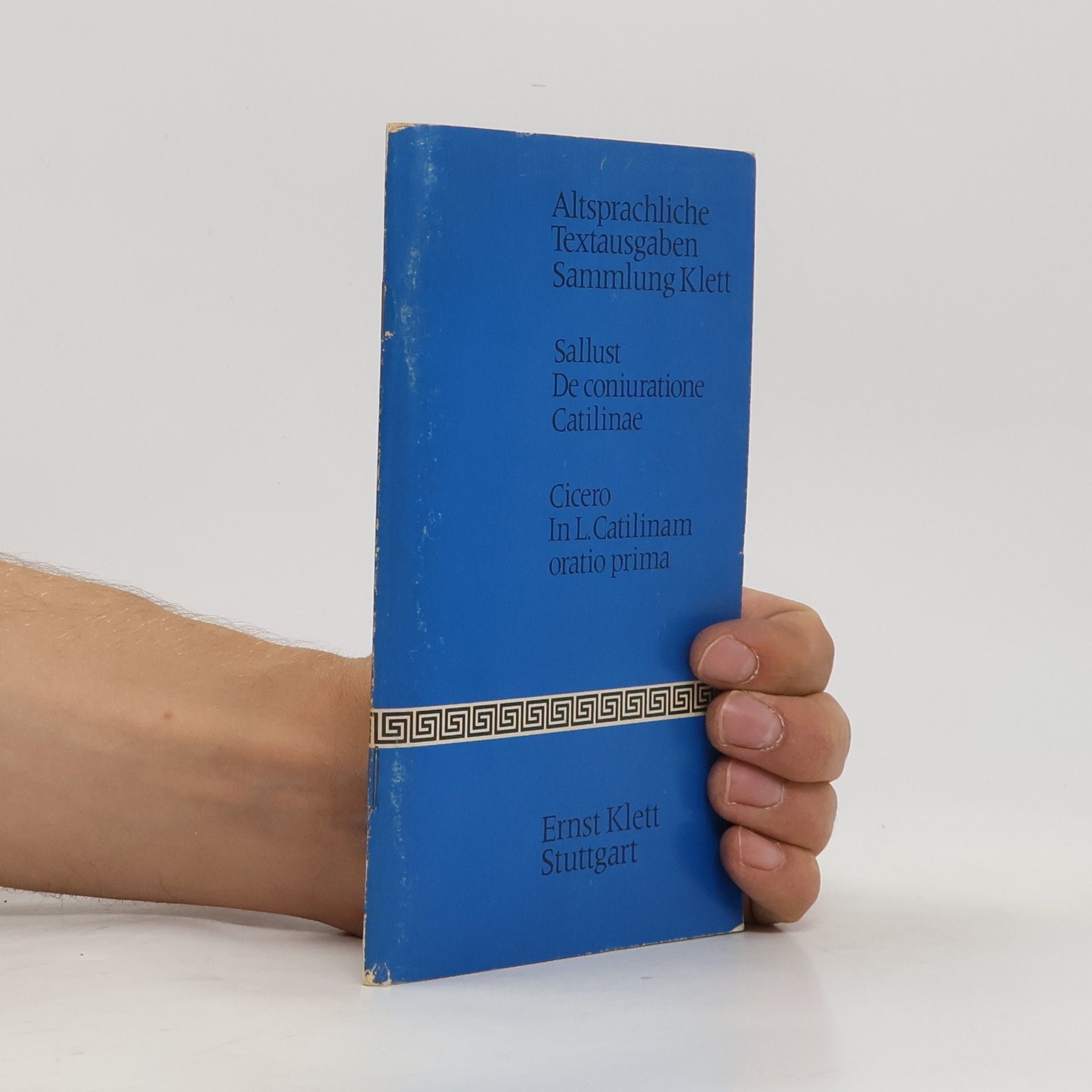Il De Catilinae coniuratione è la seconda monografia storica della letteratura latina, scritta dallo storico Gaio Sallustio Crispo. L'opera, suddivisa in 61 capitoli, racconta la congiura di Lucio Sergio Catilina nel 63 a.C., un tentativo fallimentare di instaurare una dittatura a Roma che costò a Catilina la vita. Sallustio interpreta la congiura come un segno della decadenza morale e sociale della classe dirigente romana del I secolo a.C., denunciando la corruzione dei senatori. Composta tra il 43 e il 40 a.C., è stata trasmessa attraverso codici medievali con vari titoli, tra cui Bellum Catilinae. Il termine "coniuratione" riflette il giudizio negativo di Sallustio sull'evento. La narrazione non è lineare; i capitoli alternano fatti ed excursus, frammentando la continuità della storia. La struttura segue il modello delle monografie ellenistiche, includendo un proemio, un ritratto del protagonista, excursus politici e analisi dei discorsi. L'opera offre una visione omogenea della storia romana dell'ultimo secolo della repubblica, evidenziando il contesto sociale e politico. La narrazione copre il periodo dal giugno 64 a.C. al gennaio 62 a.C., culminando nella battaglia di Pistoia e nella morte di Catilina. In un contesto di crisi della Repubblica, emersero vari orientamenti politici, tra cui movimenti radicali, con Catilina che si distinse come leader di un gruppo di congiurati provenienti da ceti diversi, uniti dal disprezz
Gaius Sallustius Crispus Libri






Catiline's Conspiracy, The Jugurthine War, Histories
- 236pagine
- 9 ore di lettura
These three works exemplify the Roman historian Sallust's condemnation of the excesses of the late Republic. In the conspiracy of Catiline and the war against Jugurtha he sees moral and political corruption and the tragedy of civil strife. This new translation captures Sallust's distinctive style and considers his work as history and literature.
How to Stop a Conspiracy
- 240pagine
- 9 ore di lettura
In 63 BC, frustrated by his failure to be elected leader of the Roman Republic, the aristocrat Catiline tried to topple its elected government. Backed by corrupt elites and poor, alienated Romans, he fled Rome while his associates plotted to burn the city and murder its leading politicians. The attempted coup culminated with the unmasking of the conspirators in the Senate, a stormy debate that led to their execution, and the defeat of Catiline and his legions in battle. In How to Stop a Conspiracy, Josiah Osgood presents a brisk, modern new translation of the definitive account of these events, Sallust's The War with Catiline. In a taut, jaw-dropping narrative, Sallust combines juicy details about Catiline and his louche associates with highly quotable moral judgments and a wrenching description of the widespread social misery they exploited. Along the way, we get unforgettable portraits of the bitter and haunted Catiline, who was sympathetic to the plight of Romans yet willing to destroy Rome; his archenemy Cicero, who thwarts the conspiracy; and Julius Caesar, who defends the conspirators and is accused of being one of them. Complete with an introduction that discusses how The War with Catiline has shaped and continues to shape our understanding of how republics live and die, this volume makes Sallust's gripping history more accessible than ever before.
The narrative explores Lucius Sergius Catilina's conspiracy to topple the Roman Republic in 63 BC, highlighting the political intrigue and societal tensions of the era. Additionally, it covers the Jugurthine War, a conflict against Jugurtha in Numidia from 112 to 106 BC, illustrating the challenges Rome faced in maintaining its power and the complexities of warfare during this tumultuous period. Together, these historical accounts provide insight into the struggles for control and the dynamics of Roman politics.
Conspiracy Of Catiline And The Jurgurthine War
Literally Translated With Explanatory Notes By The Rev. John Selby Watson
- 168pagine
- 6 ore di lettura
Exploring pivotal events in Roman history, this work presents a literal translation of the conspiracy of Catiline and the Jurgurthine War, accompanied by explanatory notes by Rev. John Selby Watson. It delves into themes of political intrigue, corruption, and military conflict, providing insights into the social and political dynamics of ancient Rome. The annotations enhance understanding of historical context and significance, making it a valuable resource for students and enthusiasts of Roman history.
The book is a reproduction of a historical work, presented in large print to enhance accessibility for individuals with impaired vision. Published by Megali, a company dedicated to making classic literature more readable, this edition aims to preserve the original content while catering to the needs of a wider audience.
Bellum Iugurthinum
- 222pagine
- 8 ore di lettura
»In einem Stil, der selbst in den Verknüpfungen der Sätze, erst recht in Wortwahl und Konstruktion stets individuell abgewandelt ist, hat Sallust nicht nur dem Krieg mit Jugurtha und einer Krise der römischen Innenpolitik ein Denkmal gesetzt, sondern er kann als repräsentativ gelten für die senatorische Geschichtsschreibung, die modernem historischem Bewußtsein besonders nahe zu kommen scheint; ein Appell an die Entscheidung und Verantwortung des Menschen, die Gründe, die den Verlauf der Geschichte unberechenbar machen, zu erforschen.« – Karl Büchner
Catilina, Iugurtha, Historiarum Fragmenta Selecta, Appendix Sallustiana
- 280pagine
- 10 ore di lettura
Historische Schriften. Meisterwerke der Antike
Catilina. Iugurtha. Auswahl aus den Historien
De coniuratione Catilinae. Cicero
- 59pagine
- 3 ore di lettura



